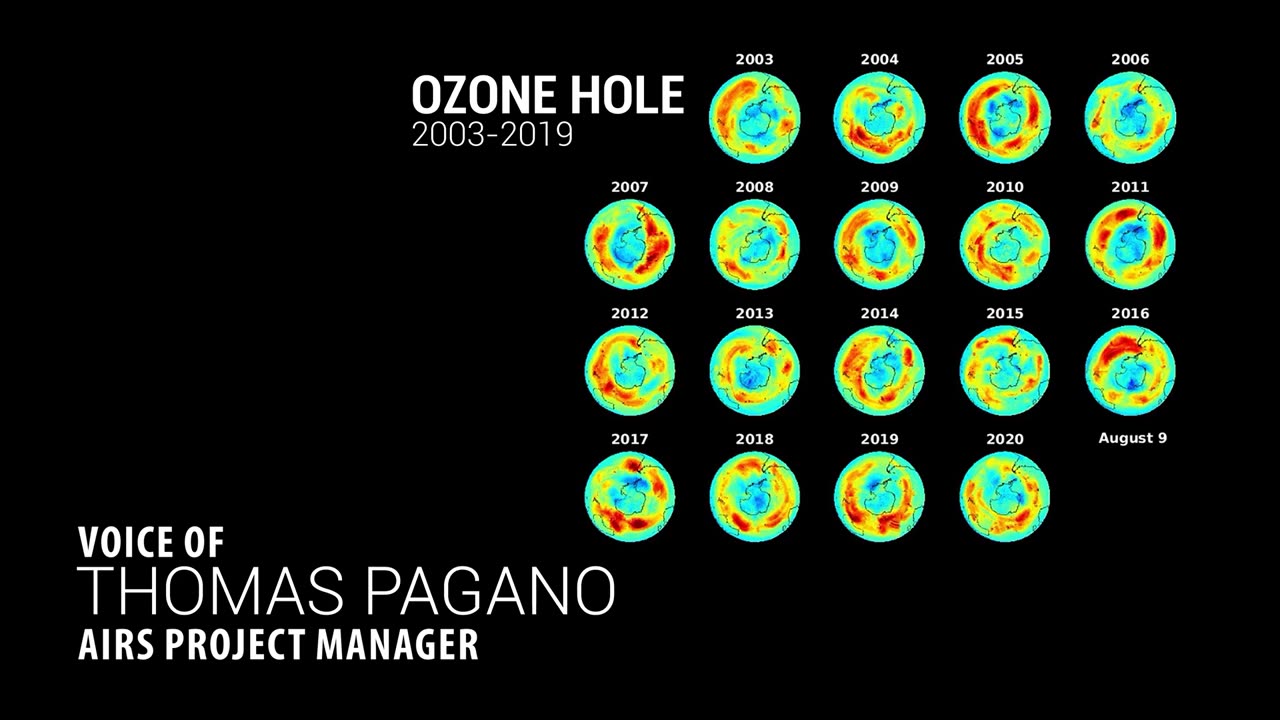Premium Only Content

AIRS- NASA Advances Our Understanding of Earth’s Climate
The Atmospheric Infrared Sounder (AIRS) is a highly advanced instrument developed by NASA that plays a crucial role in advancing our understanding of Earth's climate. It is aboard the Aqua satellite, which was launched on May 4, 2002, as part of NASA's Earth Observing System (EOS). AIRS is designed to measure the Earth's atmospheric temperature, humidity, cloud properties, and greenhouse gas concentrations on a global scale.
Here are some key contributions of AIRS to our understanding of Earth's climate:
Global Climate Monitoring: AIRS provides highly accurate and detailed measurements of temperature and humidity throughout the atmosphere. This data is essential for tracking climate change, analyzing trends, and understanding the dynamics of the Earth's climate system.
Greenhouse Gas Observations: AIRS is capable of measuring the concentration of greenhouse gases such as carbon dioxide (CO2) and methane (CH4) in the atmosphere. This information is critical for studying the sources, sinks, and distribution of these gases, which play a significant role in the Earth's energy balance and climate.
Weather Forecasting and Research: The detailed atmospheric profiles obtained from AIRS data help improve weather forecasting models by providing accurate initial conditions for numerical simulations. This contributes to more reliable short-term weather predictions and the study of atmospheric processes.
Understanding Climate Feedbacks: AIRS data assists researchers in studying climate feedback mechanisms, where changes in one aspect of the climate system can influence other components. For example, the interaction between water vapor, clouds, and temperature is critical for understanding climate sensitivity.
Validation of Climate Models: AIRS data is used to validate and improve climate models by comparing model predictions with actual observed data. This process helps scientists refine and enhance the accuracy of climate simulations.
Detection of Extreme Events: AIRS data can help identify and monitor extreme weather events, such as heatwaves, droughts, and heavy rainfall, which have important implications for climate change impacts and adaptation strategies.
Long-Term Climate Studies: Over its years of operation, AIRS has amassed a significant dataset that allows scientists to study long-term climate trends, variability, and changes in the atmosphere. This historical perspective is essential for understanding how climate is evolving over time.
Overall, the data collected by AIRS contributes significantly to the advancement of climate science, enabling researchers to better comprehend the complex interactions within Earth's atmosphere and make informed decisions about climate policy and mitigation strategies.
-
 20:17
20:17
BlaireWhite
1 day agoExposing Lilly Tino: The Trans TikTok Predator
6168 -
 26:05
26:05
DeVory Darkins
1 day ago $12.08 earnedCNN dealt HUMILIATING SETBACK after experts FACT CHECK Texas flash floods
15.4K76 -
 12:44
12:44
Nate The Lawyer
2 days ago $0.20 earnedCelebrated NY DEI Boss Arrested by FBI | Chinese Spy & $44M Fraud
20.8K4 -
 28:08
28:08
Scary Mysteries
21 hours ago5 TERRIFYING Mysteries That Remain UNSOLVED
91.3K6 -
 3:19:32
3:19:32
FreshandFit
8 hours agoPop The Balloon Girl Exposed?!
233K88 -
 2:03:12
2:03:12
Badlands Media
13 hours agoBaseless Conspiracies Ep. 140: Benghazi Whistleblower Nick Noe - Part 2
93.2K42 -
 3:06:47
3:06:47
Laura Loomer
9 hours agoEP131: Zohran Mamdani's Radical Roots EXPOSED
48.2K30 -
 2:42:53
2:42:53
TimcastIRL
10 hours agoDOJ Drops MASSIVE Epstein COVER UP, Says There's NO CLIENT LIST | Timcast IRL
248K173 -
 54:25
54:25
Inverted World Live
9 hours agoThe JFK Assassination and How the CIA Made the Zapruder Film | Ep. 70
39.8K13 -
 10:11:25
10:11:25
SpartakusLIVE
17 hours ago$18,000 2v2 WZ Total Frenzy Tournament || #1 Comp Champ is BACK
96K4